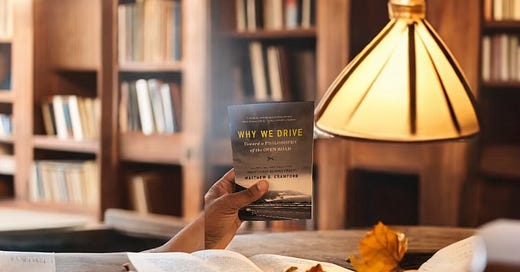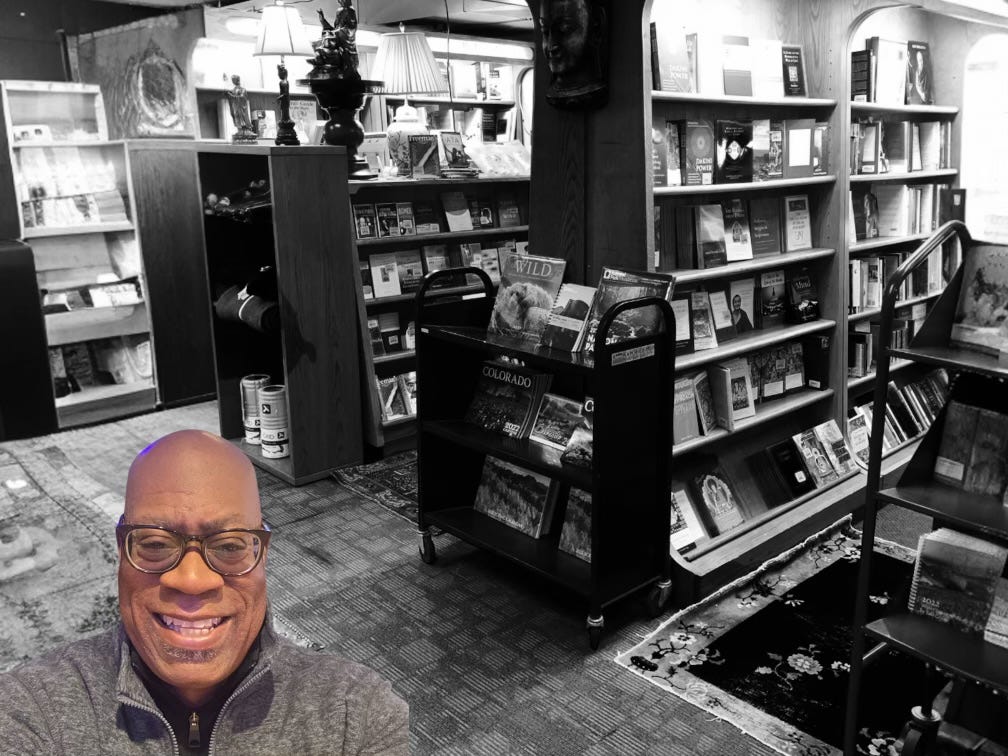Let’s be honest. The world currently has a vibe of a live-action episode of Black Mirror—confused, chaotic, and emotionally reactive.
Sadly, we’ve become dopamine junkies, addicted to clickbait, drowning in groupthink, outsourcing our thoughts to influencers and AI-generated hot takes. In the midst of this madness, I’ve made a conscious, even rebellious choice to read. And read some more.
Not to escape, but to confront. For me, that means reading philosophy like I’m drinking out of a firehose.
Books, for me, are not nostalgic artifacts or cozy little escapes from the dumpster fire of modern life. They are weapons.
They are the sharpest tools I have to carve out space for actual thinking in a culture that punishes nuance and rewards outrage. While the world shrieks in emotional doldrums, I choose the long, meandering, uncomfortable route of reflection.
Lately, my drug of choice has been A.C. Grayling’s “The History of Philosophy.” But don’t let the academic title fool you—this isn’t some crusty, ivory-tower tome collecting dust. It’s a bomb of a book, detonating the myth that philosophy is for old men in togas or bored undergrads arguing in cafés.
Grayling serves up a sweeping, gutsy chronicle of human thought that feels less like a lecture and more like a roundhouse kick to intellectual complacency.
What makes Grayling’s book so electric is how he frames philosophy not as a sterile discipline but as a fight—a wild, relentless battle to make sense of our messy, uncertain existence.
Whether he’s digging into Confucius or Kant, Aristotle or Arendt, Grayling brings one core message home: humans have always been flailing around in the dark trying to figure out what the hell it means to live, love, die, and make sense of this circus called life.
Sound familiar?
That’s why I’m drawn to philosophy—not because I want answers, but because I want better questions. I want to strengthen my critical thinking muscles, not sedate them with pop culture platitudes and self-help fluff.
I want to think like Socrates, doubt like Descartes, rage like Nietzsche, and observe like Lao Tzu. Because if you’re not questioning the narrative right now, you’re probably being played.
Books like The History of Philosophy remind me that uncertainty isn’t a glitch in the system—it is the system. We weren’t promised clarity or consensus. What we were given—if we’re bold enough to claim it—is the capacity to think for ourselves.
In a time when opinions are sold wholesale and tribalism is the currency of conversation, independent thought has become radical. Hell, it’s damn near revolutionary.
Here’s the thing no one wants to say out loud. Ready?
….. that most people don’t want to think. They want to be told. They want someone to feed them a worldview wrapped in pretty packaging, preferably with a social media following and a monetized course attached.
Yup, thinking is hard. Reading is slow. Reflection is lonely. But that’s exactly the point. That’s where transformation happens—in the still, defiant act of turning the page and sitting with your own damn thoughts.
Grayling doesn’t offer comfort. He offers a mirror. He says, “Here’s what the greatest minds of humanity have wrestled with. Now it’s your turn.” And that’s the edge I crave—the philosophical gauntlet thrown at my feet.
Not to become a know-it-all, but to become a know-myself-at-all-costs kind of person. To refuse easy narratives. To smash lazy binaries. To sit with discomfort and call it growth.
Reading philosophy in times like these isn’t just therapeutic. It’s insurgent. It’s how I dodge the psychic sedatives of modern life and stay sharp, awake, dangerous. It’s how I reclaim sovereignty over my mind in a world that wants to rent it out.
So if you’re overwhelmed, confused, or numb, don’t scroll your way through it. Read your way through it. Reflect. Rage. Rethink. Because in a world on fire, critical thinking is the only flame worth lighting.
Would you be kind enough to consider joining as a paid member supporter. Or feel free to tip me some coffeehouse love here if you feel so inclined.
Your contributions are appreciated!
Every bit counts as I strive to deliver high quality feature articles into your inbox on a regular basis. Never any paywalls, just the opportunity to foster community, connection, and conversation one book at a time.







This is what I needed to hear this morning. I stumbled across a piece on Aristotle and Plato and it took me back to my freshman Philosophy course. I was curious about what (then) modern day philosophers did since the Agora no longer existed. We desperately need critical thinkers of all ages in these chaotic times. Thank you!
I'll definitely bookmark the title of this new tome on philosophy, Diamond. It does seem that most humans would rather follow a herd instinct that leads to a pre-manufactured belief system than engage in the rigors of critical thinking. It's that very human tendency to do things the easier way instead of a harder way when there's a choice, even when the harder is a better way.